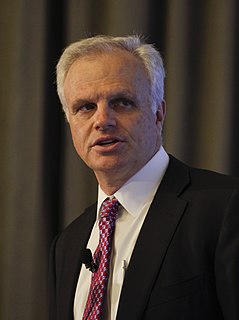A Quote by Amartya Sen
To conclude this discussion, assessment of justice demands engagement with the 'eyes of mankind',first, because we may variously identify with the others elsewhere and not just with our local community;second, because our choices and actions may affect the lives of others far as well as near;and third,because what they see from their respective perspective of history and geography may help us to overcome our own parochialism.
Quote Topics
Actions
Affect
Assessment
Because
Choices
Community
Conclude
Demands
Discussion
Elsewhere
Engagement
Eyes
Far
First
Geography
Help
History
Identify
Just
Justice
Lives
Lives Of Others
Local
Local Community
Mankind
May
Near
Others
Our
Our Choices
Overcome
Own
Parochialism
Perspective
Second
See
Third
Us
Well
Related Quotes
It requires something more than personal experience to gain a philosophy or point of view from any specific event. It is the quality of our response to the event and our capacity to enter into the lives of others that help us to make their lives and experiences our own. In my own case my convictions have derived and developed from events in the lives of others as well as from my own experience. What I have seen meted out to others by authority and repression, economic and political, transcends anything I myself may have endured.
Compassion allows us to use our own pain and the pain of others as a vehicle for connection. This is a delicate and profound path. We may be adverse to seeing our own suffering because it tends to ignite a blaze of self-blame and regret. And we may be adverse to seeing suffering in others because we find it unbearable or distasteful, or we find it threatening to our own happiness. All of these possible reactions to the suffering in the word make us want to turn away from life.
Many people do not know that they can strengthen or diminish the life around them. The way we live day to day simply may not reflect back to us our power to influence life or the web of relationships that connects us. Life responds to us anyway. We all have the power to affect others. We may affect those we know and those we do not even know at all. . . . Without our knowing, we may influence the lives of others in very simple ways.
...we sacrifice other species to our own not because our own has any objective metaphysical privilege over others, but simply because it is ours. It may be very natural to have this loyalty to our own species, but let us hear no more from the naturalists about the "sentimentality" of anti-vivisectionists. If loyalty to our own species - preference for man simply because we are men - is not sentiment, then what is?
Some rescue groups are highly organized, experienced, well-funded, nearly professional. Others are small amateur operations run out of garages and back yards. Their members may identify strongly with animals as victims, sometimes because of traumas and disappointments in their own lives. Others simply love animals and want to help them.
Envy, my children, follows pride; whoever is envious is proud. See, envy comes to us from Hell; the devils having sinned through pride, sinned also through envy, envying our glory, our happiness. Why do we envy the happiness and the goods of others? Because we are proud; we should like to be the sole possessors of talents, riches, of the esteem and love of all the world! We hate our equals, because they are our equals; our inferiors, from the fear that they may equal us; our superiors, because they are above us.
We are beset by problems and if we look for their source, we find they arise because of our selfishness, because we tend to pursue our own interests at the expense of others. Our various religious traditions exist to help us reduce these problems. They all teach ways to overcome suffering through cultivating love and compassion, tolerance, patience and contentment.
The quality of everything we do: our physical actions, our verbal actions, and even our mental actions, depends on our motivation. That's why it's important for us to examine our motivation in our day to day life. If we cultivate respect for others and our motivation is sincere, if we develop a genuine concern for others’ well-being, then all our actions will be positive.








































